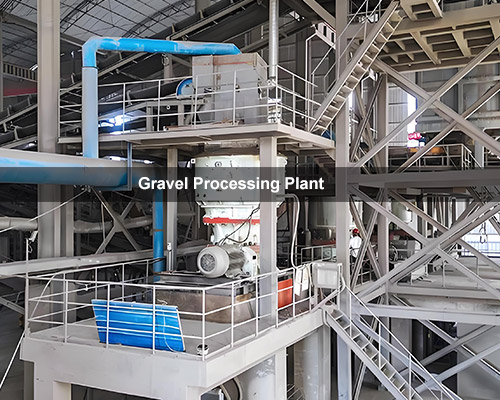Gravel Processing Plant
Posted: 2025-11-04 Source: Liming Heavy Industry Views: 147
Introduction
A gravel processing plant plays a crucial role in producing high-quality aggregates for construction, road building, and landscaping. By integrating crushing, screening, and washing equipment, these plants efficiently transform raw materials into precisely graded gravel products.

Key Components of a Gravel Processing Plant
1. Primary Crushers
Primary jaw crushers or gyratory crushers reduce large rocks into smaller, manageable sizes. Common choices include:
- Jaw Crushers – Ideal for hard, abrasive materials
- Impact Crushers – Best for softer rock and recycling applications
2. Secondary and Tertiary Crushers
Additional crushing stages refine material size:
- Cone Crushers – Produce finer, cubical aggregates
- Vertical Shaft Impactors (VSI) – Improve particle shape
3. Screening Equipment
Vibrating screens separate gravel into different sizes:
- Scalping Screens – Remove larger debris
- Deck Screens – Classify materials by size
4. Washing Systems
Sand screws and log washers remove impurities for cleaner final products.
5. Conveyors and Storage
Efficient belt conveyors transport materials, while stockpiles ensure steady supply.
Best Practices for Gravel Processing
- Proper Material Feed – Ensure consistent input size to avoid crusher overload
- Regular Maintenance – Prevent downtime by inspecting wear parts
- Dust Control – Implement water sprays or enclosures
- Energy Efficiency – Optimize motor usage for cost reduction
Conclusion
A well-designed gravel processing plant maximizes productivity while minimizing operational costs. By selecting the right machinery and maintaining efficient workflows, operators can supply high-quality gravel for various industries.